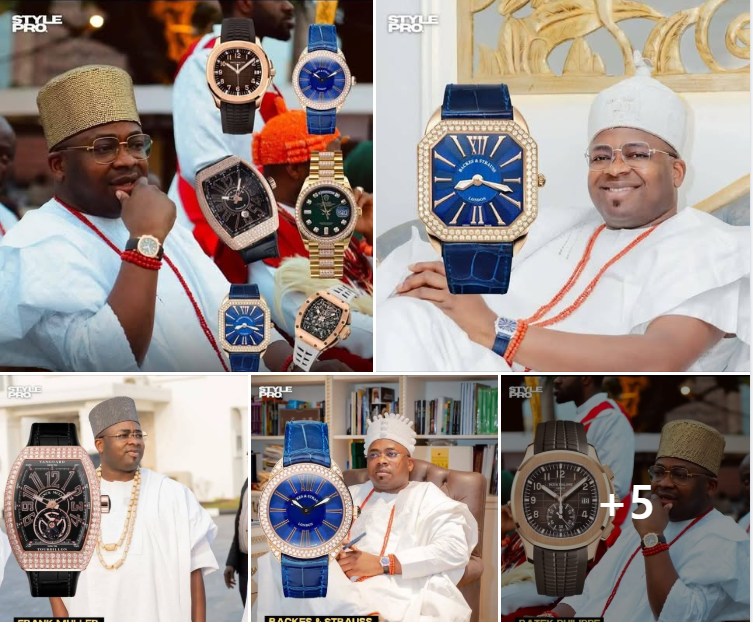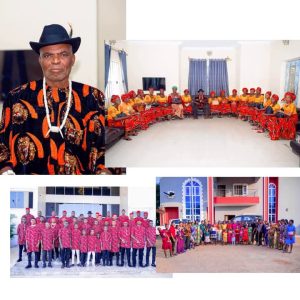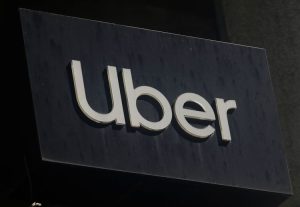The Value of Luxury, Wealth, and Leadership: Reflections on Kingship and Socioeconomic Empowerment
Kings and their wealth have long been subjects of fascination, not just for the opulence they possess, but also for the influence they exert over their people. In a modern context, a king’s wealth could be measured in various forms—luxury items, investments, land holdings, businesses, and of course, the intangible power to influence and uplift the lives of others. Consider the scenario of a king who has amassed a wristwatch collection worth a billion Naira. One might wonder: how does this luxury collection compare to the total value of his other assets—his cars, shoes, properties, or even his influence within his kingdom?
In today’s world, billionaires flaunt their wealth through luxury items that often set trends and define their lifestyles. For a king to own a wristwatch collection worth a billion Naira, it’s not just an indicator of personal luxury; it’s a reflection of how far wealth can be concentrated in the hands of a single individual. But what does this collection represent in the grand scheme of things?
A wristwatch collection worth one billion Naira could encompass a variety of high-end, limited-edition, and customized timepieces from luxury brands. These could range from rare Rolexes, Audemars Piguets, and Patek Philippes to exclusive, one-off designs made by private ateliers. Each piece could be worth tens of millions of Naira, depending on its rarity, craftsmanship, and historical value.
However, to truly understand the significance of a king’s luxury collection, we need to ask: what is the cost of his other luxury items? If we include cars, properties, shoes, jewelry, and other items of extravagance, it’s easy to imagine the value running into several billions of Naira. Luxury cars—perhaps from brands like Bugatti, Rolls-Royce, and Lamborghini—are often worth between 30 to 100 million Naira per vehicle, with collections running in the hundreds of millions or even billions.
The king’s shoes, clothing, and other personal items might also be equally luxurious, though often less conspicuous. High-end designer brands like Louis Vuitton, Gucci, and Prada could account for tens of millions of Naira in personal attire alone. These items, alongside a fleet of luxury vehicles, multiple properties, and various investments, would significantly raise the total value of the king’s wealth.
But while this opulence may seem excessive to some, it’s essential to remember that wealth, in itself, is not inherently bad. The way in which it is used, however, can determine its moral standing. Is the king using his wealth to uplift his people, or is he simply hoarding it for himself? In the case of Ikate Kingdom, under the leadership of Oba Saheed Ademola Elegushi, it seems that the king is aware of his responsibility to his people, making efforts to empower and support them in meaningful ways.
In the Bible, the Israelites asked God for a king to rule over them, even though God had always been their sovereign ruler. Their request displeased God because, in essence, they were rejecting God’s leadership in favor of a human one. They wanted a king “like all the other nations” around them, one who could lead them in battle and provide for their needs.
God’s warning to the Israelites came through the prophet Samuel, who foretold the negative consequences of having a human king. Kings, Samuel warned, would take their sons to war, tax their property, and take a portion of their crops. Eventually, the king would enrich himself and his family at the expense of the people. The king, in essence, would exploit his position for personal gain, leaving the people vulnerable and impoverished.
King Saul, the first king of Israel, exemplified this warning. Although initially humble and chosen by God, Saul became increasingly self-serving, enriching himself and his family through the spoils of war. His reign ended in failure, not because he failed to protect his people, but because of his focus on consolidating power and wealth for himself. Saul’s tragic downfall is a reminder of the dangers of unchecked leadership and the tendency of rulers to become consumed by their wealth and power.
When we look at the situation in Ikate Kingdom, there seems to be a stark contrast. While King Saul’s reign was marred by self-interest, Oba Elegushi of Ikate appears to be using his wealth to benefit his people. This highlights an important distinction between different types of kingship: one focused on personal gain, and the other on collective empowerment.
Ikate Kingdom, under the leadership of Oba Saheed Ademola Elegushi, stands as an example of how a monarch can wield his wealth and influence for the betterment of his people. Oba Elegushi, a young and wealthy king, is widely respected for his progressive stance on leadership and community development. While he enjoys the luxuries that come with his position, he also understands the importance of helping those in need.
For the indigenes of Ikate Kingdom, the presence of a wealthy and compassionate king offers a unique opportunity. Rather than having to struggle alone in a challenging economic environment, they are encouraged to seek opportunities and support within their own community. Oba Elegushi’s success does not isolate him from his people; instead, it provides a platform for others to rise. The young people of Ikate Kingdom are encouraged to return home, learn skills, and present their needs to the king. By doing so, they can find the support and resources necessary to pursue their aspirations.
One of the key advantages of living under the leadership of a king like Oba Elegushi is the accessibility he provides to his people. Unlike political officeholders, who can be distant and inaccessible to ordinary citizens, a king’s role is inherently more personal. Kings, particularly in traditional African societies, have always been seen as guardians of the people. They are expected to be close to their subjects and to use their influence to help them.
The idea that an indigene of Ikate Kingdom could enter the palace and present their needs to the king is a powerful one. It reflects the ongoing tradition of kingship as a system of support, not just a system of governance. In many parts of Africa, kings have used their wealth to support education, infrastructure, and the welfare of their people. Oba Elegushi’s approach is a modern take on this age-old tradition. He provides young people with a chance to break free from the cycle of poverty by giving them the tools they need to succeed.
As an Ikate indigene, one is encouraged to take action, to seek opportunities, and to use the resources available within the kingdom. Whether it’s through acquiring skills, presenting needs for financial support, or finding work within the kingdom’s various enterprises, the people of Ikate are empowered to transform their own lives. They are not expected to wander aimlessly or rely solely on external sources of support. The royal stool is within reach, and the king is seen as a leader who is willing to help.
The message to the young people of Ikate Kingdom is clear: don’t wait for opportunities to come to you. Go back to Ikate, learn a trade, and seek the king’s support in your endeavors. If you need tools or resources to start your business or craft, approach the palace with confidence. Oba Elegushi is not like King Saul, who used his power for personal enrichment. Instead, he is a leader who understands the challenges facing young people today and is willing to help them overcome those challenges.
Poverty, it seems, has no place in Ikate Kingdom. The royal wealth and the king’s commitment to uplifting his people provide an environment where success is within reach. The potential for growth and prosperity is immense, and with the right mindset, the people of Ikate can rise to new heights of achievement.
In the end, the comparison between kingship in the Bible and modern-day leadership underscores the timeless importance of using wealth and influence for the good of the people. Whether in ancient Israel or in modern-day Ikate Kingdom, the true value of a king lies not in the accumulation of wealth, but in how that wealth is used to improve the lives of those under his rule. Oba Elegushi’s example offers a hopeful vision of what leadership can look like when it is grounded in compassion, accessibility, and a commitment to empowering others. As an indigene of Ikate Kingdom, the opportunities are vast, and the resources are within reach. The question is: will you seize them?





